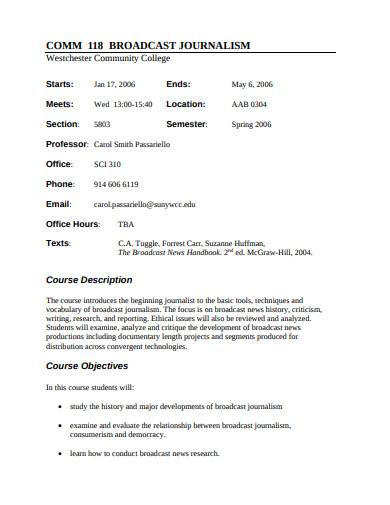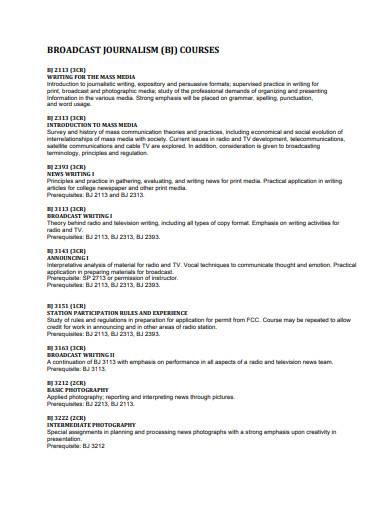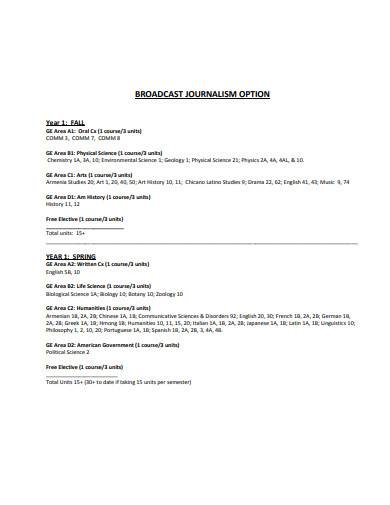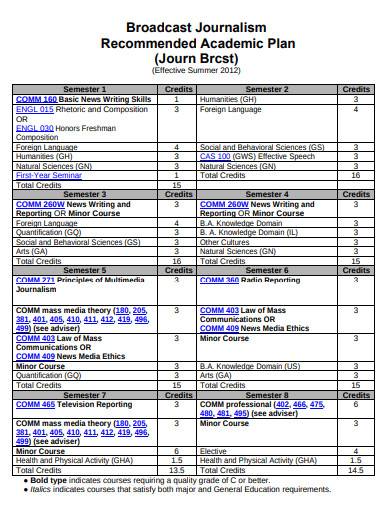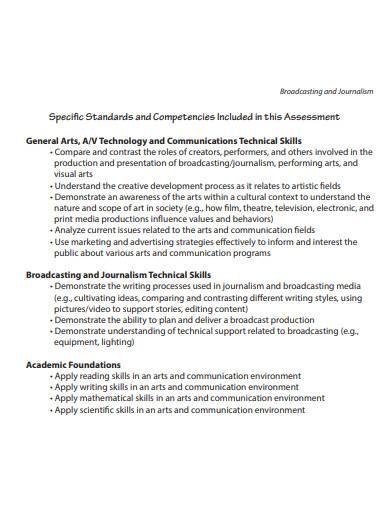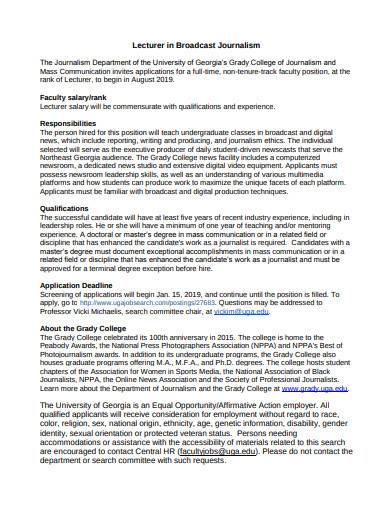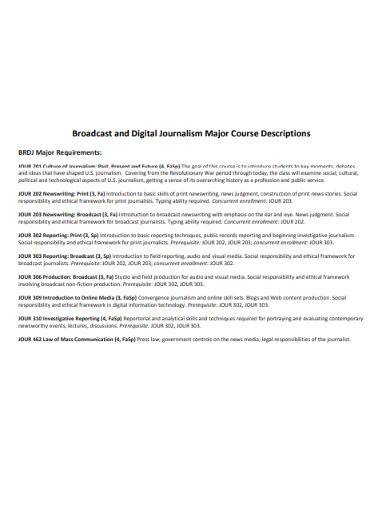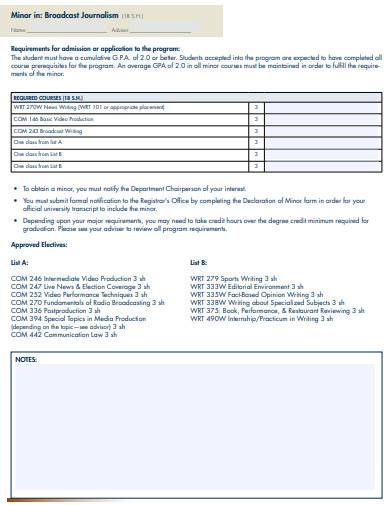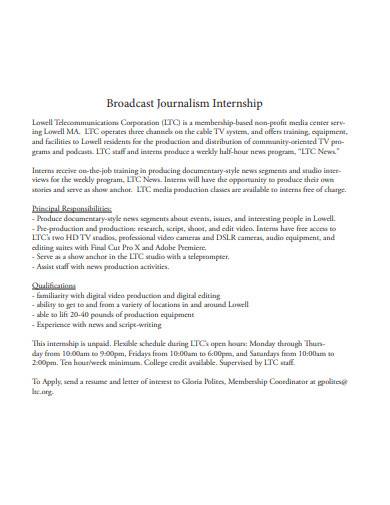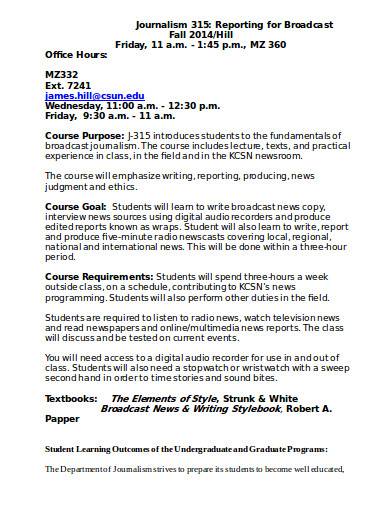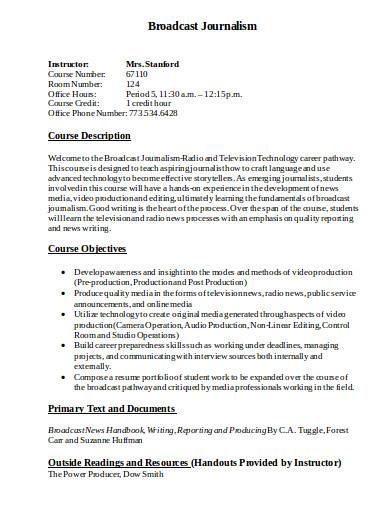In the age of technology, information is now readily available. News reports now get delivered straight to your doorsteps, phones, and televisions. When you want to hear stories on current events, all you have to do is wait for news programs to come on. Journalism, being the multimedia field that it is today, provides people with information they can access anytime and anywhere. Some people still choose to read news through newspaper reports and print journalism. Some prefer online sources for an on-the-go vibe. But if you are into just sitting down and getting someone to tell you the story, you may be into broadcast journalism.
It should not come as a shock that people today prefer watching news programs or listening to radio stations rather than reading daily reports in newspapers. This way, they can still go about their day without having to stop to get information. It’s all about multitasking. Broadcasting somehow changed the game when it comes to journalism and informational writing. The main advantage that broadcast journalism gives to people is that it disperses information faster. You get to gain knowledge straight from the source. Beginning as an entertainment source on the radio in the 1930s, broadcast journalism evolved to be the trusted news source people know today.
Importance
Being informed is essential in our everyday lives. Can you imagine your life not knowing anything? You would be clueless about how the world works, and you could easily fall victim to trickery. That is why broadcast journalism is very important. This type of journalism reports the freshest news directly from a scene. You have broadcasters away from studios and newsrooms working to deliver stories straight to you. Broadcast journalists also work as data analysts. They make sure to structure the news comprehensively for viewers to quickly understand the situation. Broadcast journalism is also a vessel to share legal information with a large number of viewers in just a matter of minutes. People now have the privilege to gain knowledge from different parts of the world without waiting for days. As the digital age continues to plague the land, broadcasting utilizes this as a way to get the job done.
Benefits of Being a Broadcaster
As seen on television and heard on the radio, a broadcaster’s job isn’t easy. You need to be brave and brilliant to survive. These are the qualities this business needs. But with a waterfall of trials, broadcast journalism careers also come with a spring of benefits.
Interview Opportunities
One major part of broadcast journalism is interviewing people, whether on-air or off-camera. Broadcasters get the chance to talk to people from different cultures and learn new and exciting things. They also get to conduct formal interviews with celebrities and political figures.
No Monotony
Broadcast journalism may be scary, but it sure as hell isn’t boring. There are so many sides to broadcasting that you won’t have time to get used to the same routine. Broadcast journalists practice interviewing, investigating, utilizing mass media and fieldwork in a single career.
Travel
Other than reporters who spend their time on sets and studios, many journalists get sent to work on the field. They get to travel all over the world in search of the perfect story to tell. They get to places they want to visit both for work and leisure.
Sense of Accomplishment
Broadcasters get criticized continuously by the public. But when they get to tell a story that matters and loved by the masses, they count that as personal development. Reporters tell their story to a large crowd, so to get their approval is quite an accomplishment.
10+ Broadcast Journalism Samples
There’s always something happening in the world. It’s necessary to have information about things to not be unaware. That’s why broadcast journalism is essential; it spreads news swiftly to a large number of people. To give you more information on what broadcast journalism is, here are multiple broadcast journalism samples you can look into.
1. Broadcast Journalism Sample
2. Broadcast Journalism Courses Template
3. Broadcast Journalism Option Sample
4. Broadcast Journalism Recommended Academic Plan Template
5. Broadcasting and Journalism Sample
6. Lecturer in Broadcast Journalism Template
7. Broadcast and Digital Journalism Major Course Descriptions
8. Minor in Broadcast Journalism Sample
9. Broadcast Journalism Internship Template
10. Journalism Reporting for Broadcast in DOC
11. Broadcast Journalism in DOC
Becoming a Broadcast Journalist
A career in broadcasting is a dream many people have. They would go to great heights just to get it. But it takes more than just reporting to be a good broadcast journalist. You need to prove yourself capable of all the duties and responsibilities of a journalist before you can say you’ve made your mark. To be a broadcast journalist, you need to accomplish these tasks.
1. Understand the Job
Broadcasting is a career that deals with reporting information. To get yourself started, you need to be knowledgeable of the duties and responsibilities of a broadcaster. Research about broadcasting, the people in the field, and the processes it involves. Once you get the gist of the job profile, you can then decide if it’s the career you should be pursuing.
2. Get a Degree
To fully understand broadcasting, you need to study it comprehensively. If you think this is the path for you, you should get educated and earn a degree in broadcast journalism. There are many programs and broadcast journalism courses you can enroll in. Find the one that suits you and start studying. A degree is also useful for proving to employers that you know how to get things done, and you would be perfect for the job.
3. Complete an Internship
Before you can become an actual broadcaster, you need to get some experience. Now you must be wondering how you are supposed to get experience if you can’t get the job. What you need to do is join internships and training programs. Internships give you a chance to experience the field without all the responsibilities and expectations of a professional. An internship experience would also look good in your resume.
4. Find a Job
Once you can call yourself educated and experienced in the field of broadcast journalism, you can now get yourself a job. Broadcasting jobs are hard to come by, so you need extra effort to get yourself noticed. Smaller cities have a lesser demand for broadcasters. The bigger the locale, the bigger the market. Start with local programs and then move on to network news.
5. Don’t Stop Learning
Things don’t stop once you have the title of a broadcast journalist. It would be best if you kept learning new things about the field to consistently better yourself. Keeping yourself open to new tips, tricks, and trends will help you improve as a broadcast journalist. The biggest names in the industry have their fame because they get the job done, and they open themselves to the changes in the industry.
Broadcasting is an integral part of people’s daily lives. Without broadcast journalism providing the people information, they would all be in the dark.
Related Posts
FREE 11+ Construction Notice Samples in PDF | MS Word
FREE 17+ Construction Management Plan Samples in PDF | Google Docs | Pages | MS Word
FREE 15+ Sample Construction Project Proposals in PDF | MS Word | Google Docs | Pages
FREE 11+ Construction Risk Assessment Samples in PDF | MS Word
FREE 7+ Construction Field Report Samples in PDF | MS Word
FREE 11+ Construction Management Contract Samples in PDF | MS Word
FREE 11+ Construction Application Samples in PDF | MS Word
FREE 16+ Construction Form Samples in PDF | MS Word
Reply to Legal Notice Samples & Templates
FREE 9+ Sample Legal Information Disclaimers in PDF
Memoir Samples & Templates
FREE 5+ Waiver of Moral Rights in PDF
FREE 10+ Charity Walk Registration Form Samples & Templates in MS Word | PDF
FREE 10+ Charity Volunteer Application Form Samples & Templates in PDF | MS Word
FREE 10+ Charity Report Samples & Templates in MS Word | MS Excel | PDF

